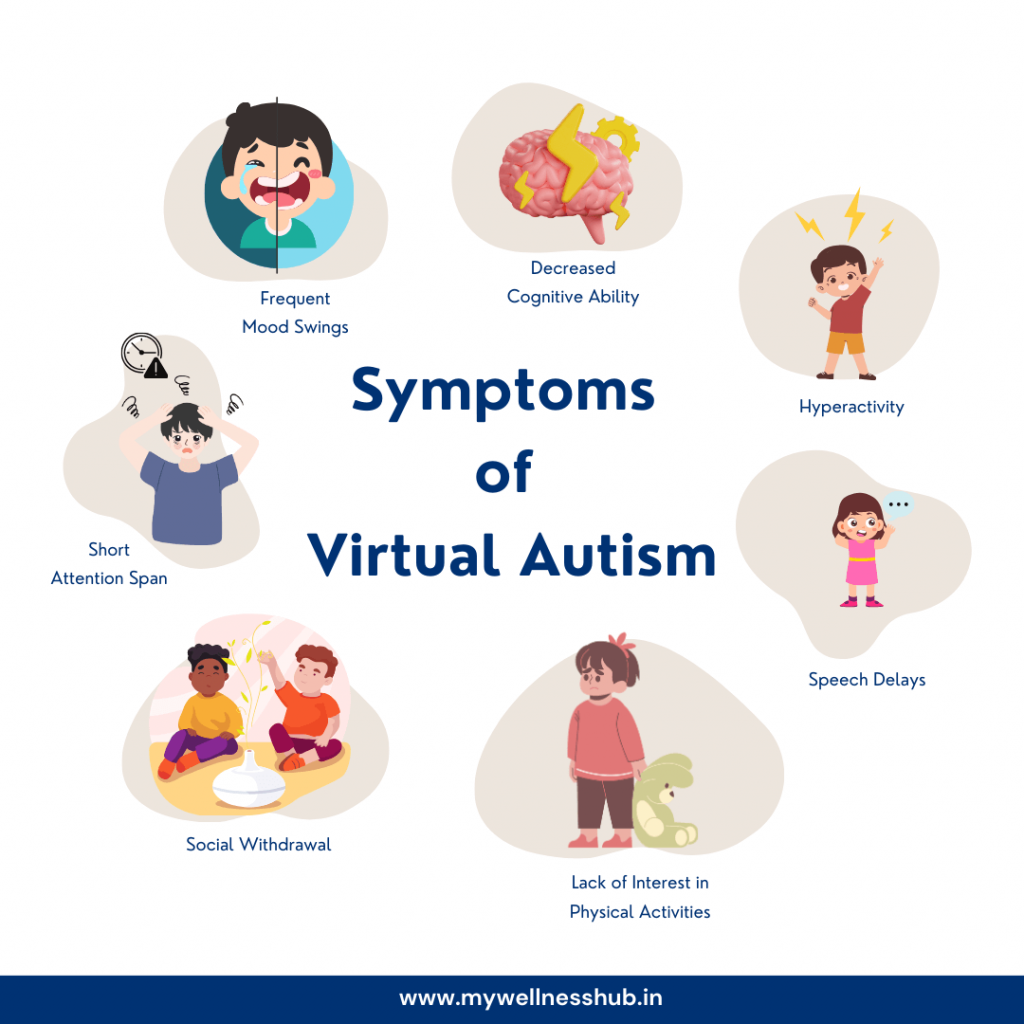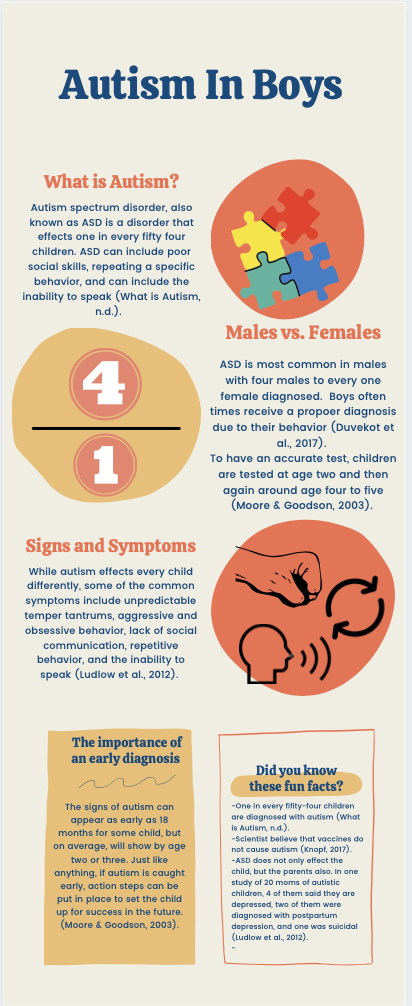Do Autism Spectrum Therapies guide developing independence in teens with ASD?
Do Autism Spectrum Therapies guide developing independence in teens with ASD?
Blog Article
Secret Symptoms And Signs to Identify in People With Behavior Autism
When you experience somebody with behavioral autism, identifying crucial symptoms and signs is necessary. You could observe challenges in social communications and communication, along with a strong requirement for routines. Additionally, sensory level of sensitivities can result in frustrating experiences. Recognizing these attributes can enhance your support and interventions, however there's even more to discover about how these behaviors show up in everyday circumstances. Let's explore what these indications really look like.
Difficulties in Social Interactions
When you connect with someone on the autism range, you may notice they struggle with social cues and interaction. These difficulties can make social communications feel overwhelming for them.
Additionally, you might find that they prefer regimens and familiar settings, which can limit their willingness to involve in new social circumstances. They may chat concerning their passions in great information without noticing if you're interested when they do involve. This can result in one-sided discussions that leave you feeling disconnected. Understanding these obstacles can help you come close to communications with compassion and persistence, fostering a more comfortable atmosphere for both of you.
Problem With Verbal and Non-Verbal Communication

Recognizing these indicators is crucial, as it helps you far better support and engage with people on the autism range. By comprehending their interaction challenges, you can foster a lot more purposeful connections and provide a more helpful environment.
Repetitive Actions and Routines
Interaction difficulties usually go along with other indicators of autism, such as repeated actions and a solid preference for regimens. You might discover that individuals with autism typically take part in certain, repetitive actions, like hand-flapping, rocking, or repeating expressions. These habits can supply comfort and a feeling of control in a commonly frustrating world.
Routines are equally crucial; many people thrive when they adhere to a structured timetable. You might locate that adjustments to these routines can lead to considerable distress. For example, if they have a day-to-day routine of consuming morning meal at a specific time or following a certain course to college, any kind of disturbance can cause anxiety.
Recognizing these patterns aids you recognize their habits and supply support. By fitting their requirement for regular and permitting repetitive activities, you can produce a much more comfortable environment that relieves their obstacles.
Sensory Level Of Sensitivities

Typical Sensory Triggers
Sensory level of sensitivities can substantially impact every day life for individuals with autism, as particular stimuli typically cause frustrating reactions. Usual sensory triggers include loud noises, brilliant lights, and solid scents. You could notice that unexpected sounds, like alarms or sirens, create stress and anxiety or distress. Similarly, fluorescent lighting in stores can really feel unpleasant and severe. Appearances can additionally play a considerable function; rough materials or particular food textures may be excruciating for you. Furthermore, crowded places can bewilder your senses, making it tough to focus or unwind. Comprehending these triggers can assist you handle your environment better. By being mindful of what influences you, you can take steps to reduce pain and enhance your day-to-day experiences.
Behavioral Feedbacks Discussed
Understanding your behavioral responses to sensory level of sensitivities is essential, as they typically disclose how you interact with the globe. You may additionally find yourself looking for particular sensory experiences, like deep pressure or quiet settings, to help ground on your own. Identifying these patterns helps you understand your requirements much better and can direct just how you connect them to others.
Coping Techniques Summary
Identifying your sensory sensitivities is simply the first step; now it's time to explore coping methods that can help you handle those experiences successfully. Start by creating a sensory toolkit customized to your demands. This might include noise-canceling earphones, fidget toys, or relaxing fragrances. Developing an organized routine can likewise supply predictability, decreasing anxiety around sensory overload. Take breaks in a peaceful room to regroup when you really feel overloaded. Exercising mindfulness methods like deep breathing can help ground you in the minute. In addition, interact your needs with those around you; having helpful loved ones can make a huge distinction. Bear in mind, locating what functions best for you might require time, so be open and patient to attempting new techniques.
Restricted Interests and Focus
While several people create a vast array of interests, those with autism typically demonstrate restricted rate of interests and an extreme concentrate on details topics. You might discover that someone with autism can invest hours diving into their favored topic, whether it's a specific sort of train, a certain motion picture, or a clinical idea. This extreme emphasis isn't just a leisure activity; it can become a central component of their identification and social communications.
You may discover that conversations revolve around these rate of interests, and they might have a hard time to involve in broader topics. By recognizing and acknowledging these limited passions, you can promote a helpful atmosphere where they feel valued and comprehended, permitting for more meaningful links and interactions.
Emotional Law Troubles
Individuals with autism usually encounter challenges in psychological policy, which can be affected by their intense concentrate on specific passions. You could notice that when an individual is deeply engaged in a preferred task, they can experience strong emotions, whether exhilaration or disappointment. This strength sometimes makes it hard for them to shift equipments or handle their sensations when points don't go as prepared.

Irregularity in Developing Milestones
When it pertains to developing landmarks, you'll see that people with autism typically show a variety of irregularity. Some may strike landmarks on time, while others may delay behind or progression at a different speed. You click here may see a kid succeed in language skills however battle with social interactions. This inconsistency can be complex, as typical standards don't constantly apply.
It's vital to identify that each individual's trip is special. Some might establish complex skills early, only to face difficulties later on. Others might take longer to accomplish standard milestones however after that grow in specific locations. Observing these patterns can help you comprehend their toughness and needs much better.
Often Asked Inquiries
Exactly How Is Autism Diagnosed in Children and Adults?
To identify autism in kids and grownups, experts review behavior, communication skills, and social interactions. If a specific fulfills the requirements for autism spectrum condition., they typically utilize standard tests, meetings, and monitorings to determine.
Are There Different Sorts Of Autism Spectrum Disorders?
Yes, there are various sorts of autism range disorders, consisting of Asperger's syndrome and pervasive developing disorder-not otherwise specified. Each kind varies in severity and qualities, so comprehending these differences can help you much better support people with autism.
What Therapies Work for Individuals With Autism?
When thinking about reliable treatments for people with autism, you'll locate choices like Applied Actions Evaluation, speech therapy, and work therapy. Each technique can assist improve communication, social skills, and everyday operating customized to individual requirements.
Can People With Autism Lead Independent Lives?
Yes, people with autism can lead independent lives. With the appropriate assistance, skills training, and resources, you can assist them develop self-sufficiency, take care of daily tasks, and flourish in various settings, cultivating their freedom.
Just How Can Households Support Liked Ones With Autism?
You can sustain your loved ones with autism by creating a structured environment, encouraging their rate of interests, exercising perseverance, fostering interaction, and promoting social skills. Celebrate their success, despite just how small, and build a supportive area.
Although lots of individuals on the autism spectrum can utilize and comprehend language, they commonly deal with considerable difficulties with both non-verbal and spoken communication. Identifying these signs is necessary, as it aids you much better assistance and engage with people on the autism spectrum. You may notice that individuals with autism frequently engage in particular, repetitive actions, like hand-flapping, shaking, or repeating expressions.Sensory sensitivities can considerably influence everyday life for people with autism, as certain stimulations frequently cause overwhelming responses.When it comes to developing milestones, you'll see that people with autism typically reveal a wide variety of variability.
Report this page